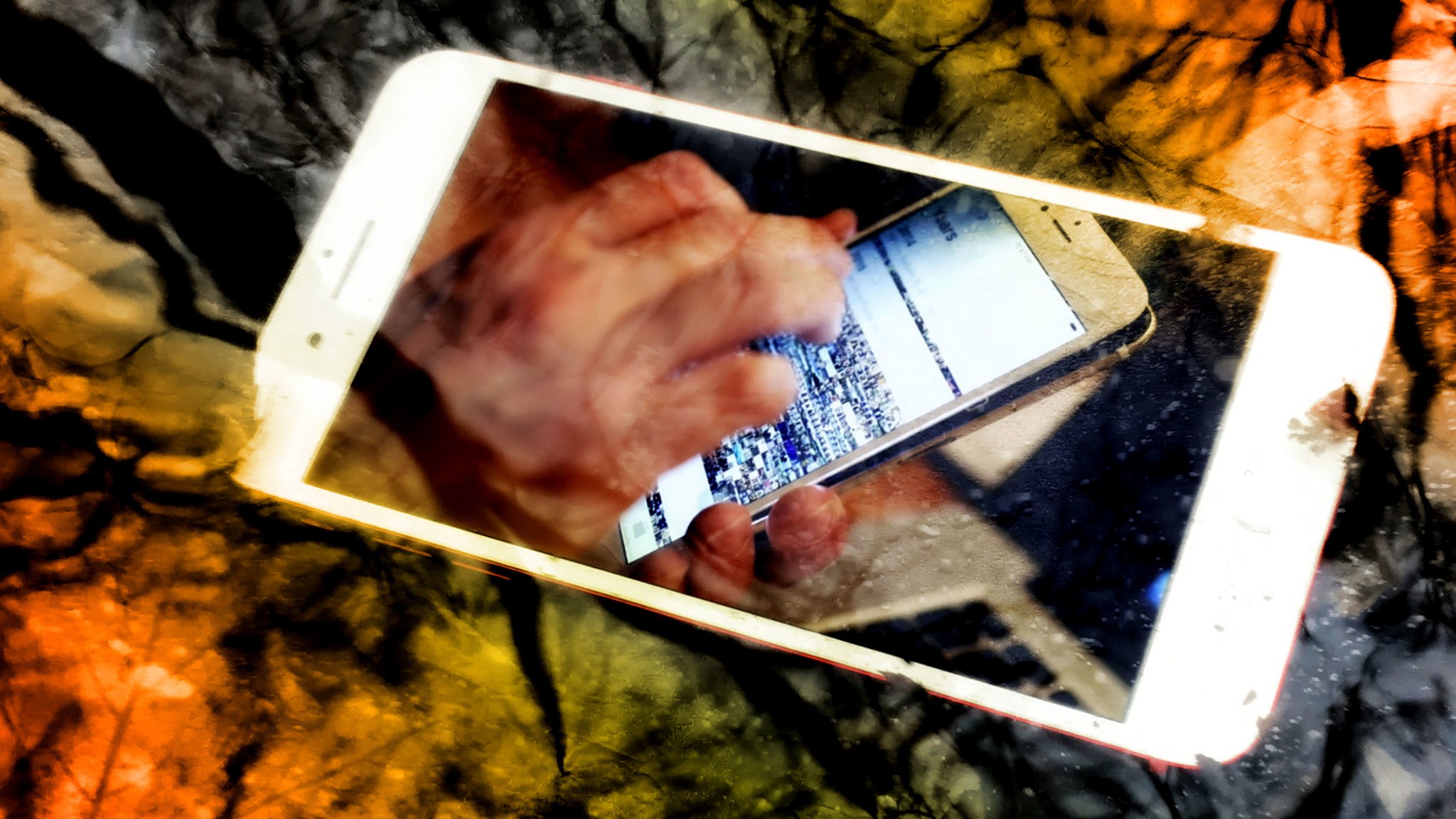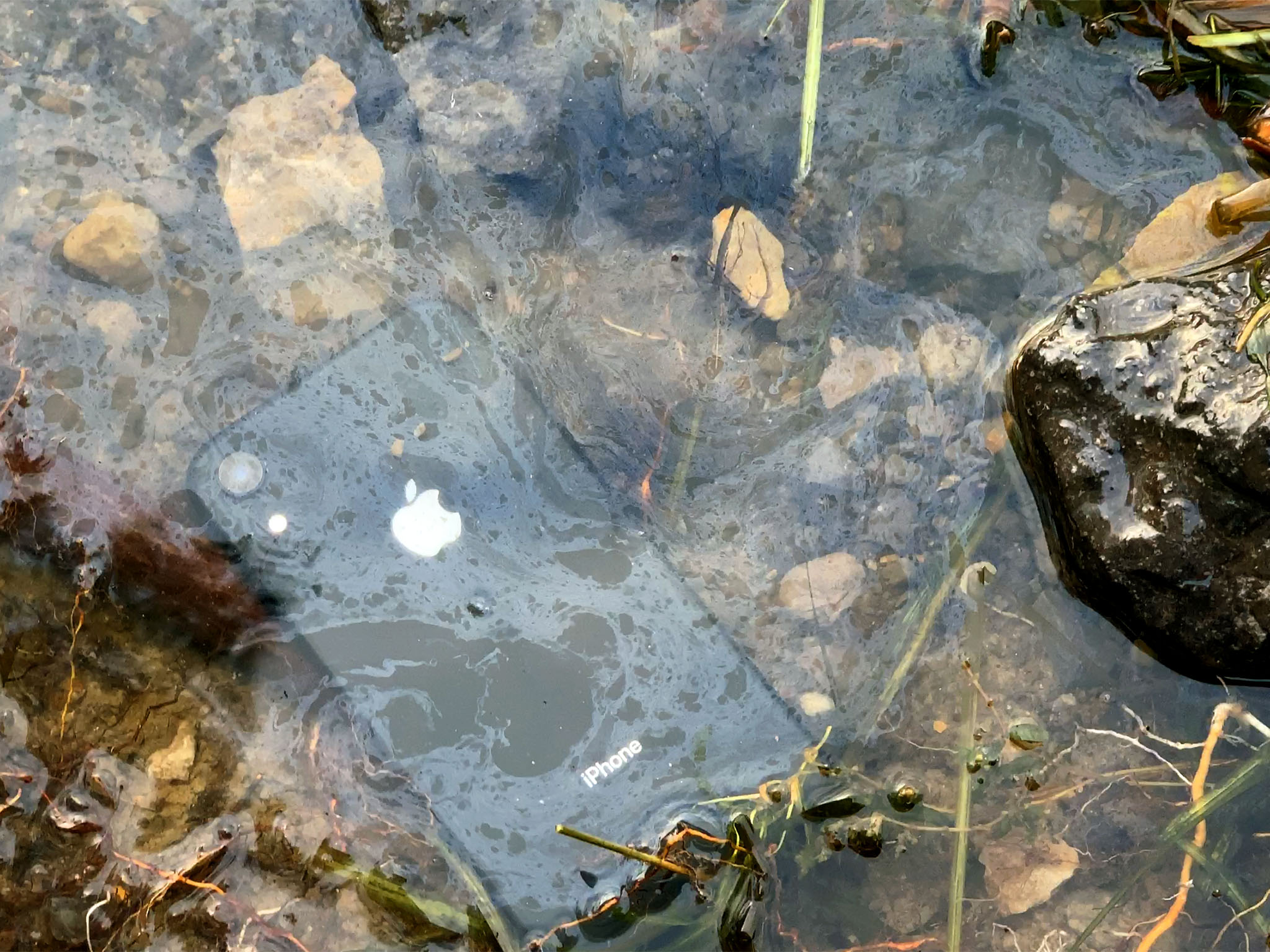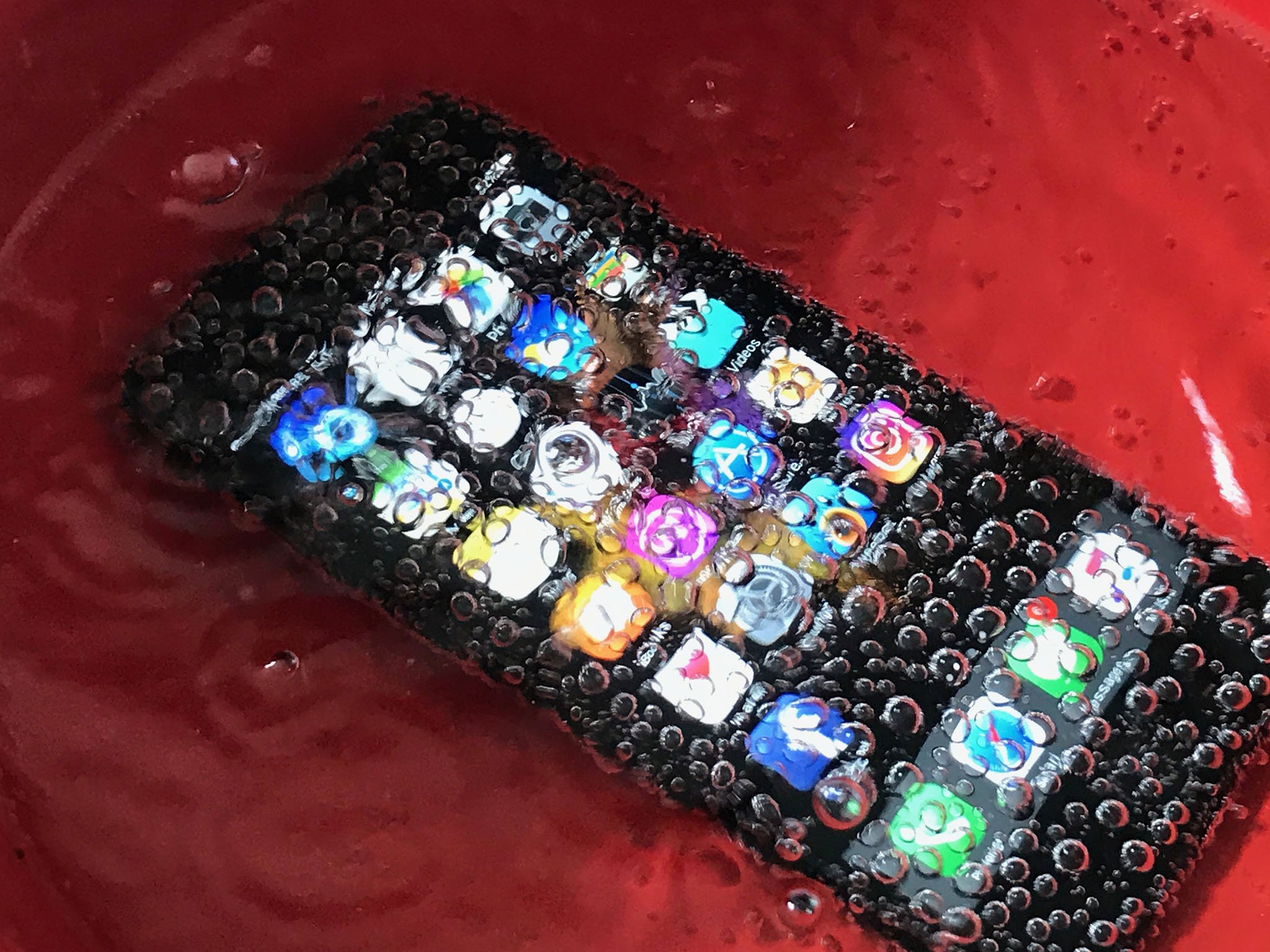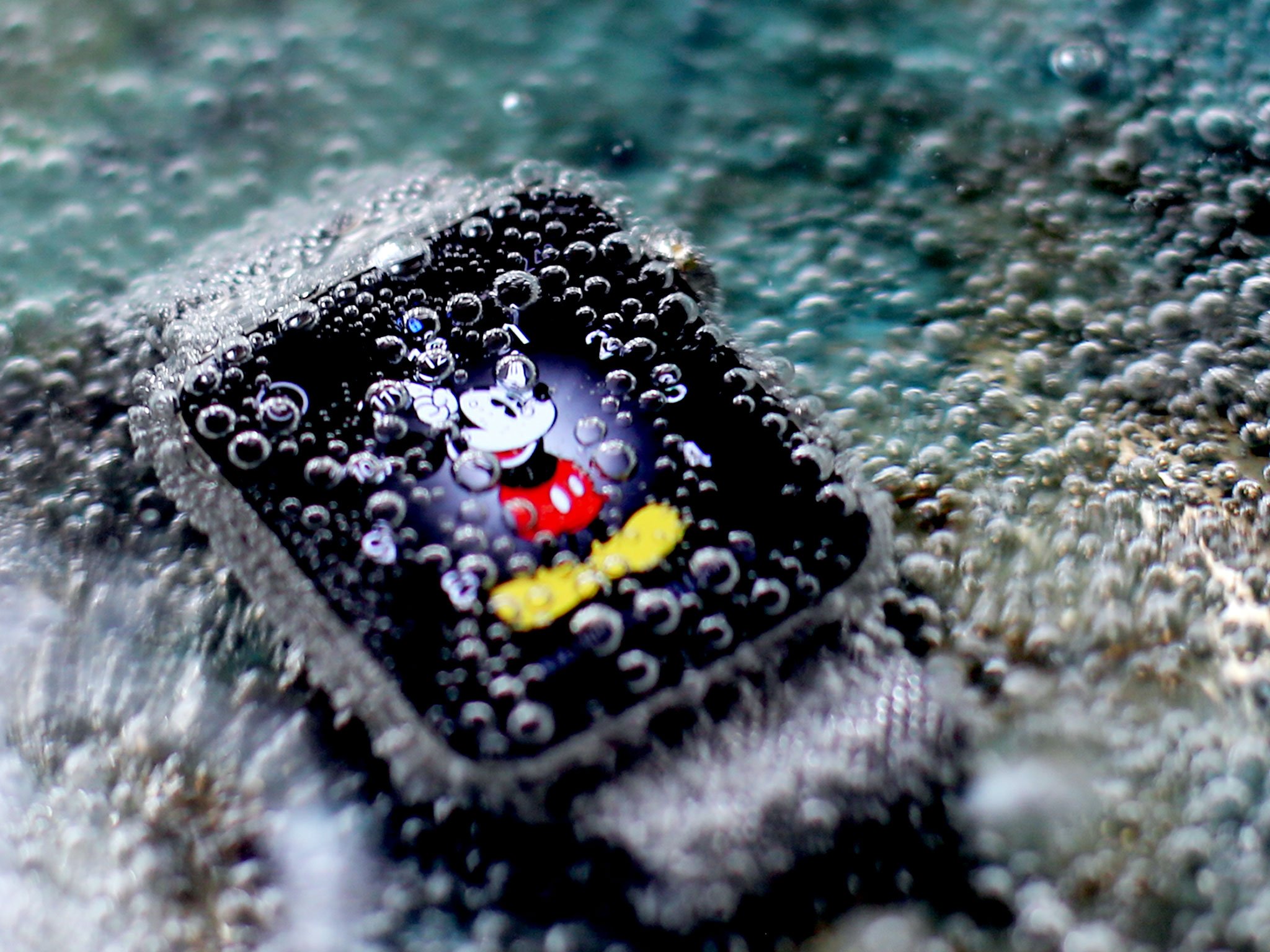CBC vs. Apple: What they're not telling you about data recovery

Apple is misleading customers about data recovery. They're lying! They ban accounts. It really pisses people off! That's the focus and fallout from a CBC report about a couple from Newfoundland who were trying to save their vacation photos from a water damaged iPhone.
I've been asked about the report over and over again since it aired and it's taken me a little while to sort through it all. And that's only because the report itself is so… unsorted — it's an incredibly important story but it's told incredibly badly.
Now, I've had many great experiences with the CBC. I spend an hour on the local affiliate every few months answering every tech support question the audience can throw at me, and I've generally found their producers and hosts to be both keenly interested in the facts and fluent in the technology.
But, I've also found that to not to be the case at all with these "gotcha" type reports that seem happy, even eager, to sacrifice the facts for the far more clickbaity Apple is evil and let us ignore everything else to selectively tell you why narrative… It feels like it came in with an agenda and that agenda wasn't to fully inform viewers about everything that makes this story so important, and to me that's a real missed opportunity. So, I want to take that opportunity and use it really inform everyone about everything that's going on here.
Rather watch than read? Hit play on the video above!
Data Loss
Josephine and Dave Billard went on a five-month vacation from Greece, through Europe, ending in Norway. They posted a few of their thousands of photos to Facebook, but otherwise never got around to backing them up. Then, while going for a canoe ride in a nearby pond, tragedy struck — the iPhone ended up going into the water.
This, right at the beginning, is where alarm bells start ringing. Obvious questions are either not asked or the answers aren't provided.
iMore offers spot-on advice and guidance from our team of experts, with decades of Apple device experience to lean on. Learn more with iMore!
Did the Billards have iCloud Photo Library turned on, or iCloud backup, either of the services Apple provides so that people never have to worry about getting around backing up? Did they ever sync with iTunes, either regularly, occasionally, or even once? Something else that would have generated a backup of the photos.
We can assume not, but good reporting isn't about leaving the viewer to make those kinds of assumptions. It's about providing facts and proffering a complete story.
I'm not saying Apple deserves extra credit for providing these features, or that it's a greater tragedy if they weren't known about or used or somehow weren't available. Maybe people need to better educated about them, including by this very report? Cautionary tales are, after all, meant to be cautionary, and the CBC has considerable that can be used to inform and empower their audience.
As is, it's a huge opportunity squandered, and it certainly wasn't for lack of airtime, not when so many long seconds are spent drawing out the re-telling how exactly the canoe flipped over…
After retrieving their iPhone, and understandably desperate to recover their photos, the Billards contacted Apple and we're told Apple wouldn't help. More interested in selling them a new phone than recovering their data.
But we're not told what contacting Apple means in this context. There aren't any Apple Stores in Newfoundland, so did they call AppleCare? Go online at Apple.com? Something else entirely?
I'm not for one moment going to defend Apple for not having an amazingly good response to a customer who needs data recovery — more on that in another hot take minute — but context and details are still important here. Some Apple Genius and support staff have contacted me and informed they routine tell customers about third party data recovery options and that it happens frequently enough it's odd CBC didn't encounter it for this story.
Data recovered
The couple then visited several local repair shops but none were able to help them. Why? Again, no details are provided. If their answers matched… whomever the Billards spoke with at Apple, or what the reporter gets from… whomever they spoke with at Apple later, then that's important context to include, if only to weigh the consistency and conventional wisdom of the answer.

Finally, one of the local shops suggested iPad Rehab, a legendary repair place just outside of Rochester New York.
Now, I'm old school. When I worked briefly in IT and always with my own systems, whenever I had a laptop or drive go bad, I never turned to the vendor. I turned to Alta Vista — I said old school! — and later Google. Even a few years ago when an external drive with a bunch of video interviews was damaged, I Googled and tried a couple of pieces of recovery software and weighed the costs of a recovery service.
I think nerds have just always taken responsibility for their own data backup and recovery.
But Apple hasn't been about the nerds for years. Since at least the age of iPhone, Apple has been about the mainstream, and shiny sealed objects that they'll take care of so you don't ever have to. So, I think it's absolutely legitimate that, in case of emergency, people would go to and expect data recovery from Apple, and if Apple wants to take on complete control of the experience, they also have to take on complete responsibility for handling everything that comes with it, quickly and easily. Again, I'll get back to that in a hot take minute.
The report shifts to Jessa Jones, who runs iPad Rehab. She's beyond amazing, and it's great to see her getting the attention she deserves. Even if the report also shifts into more of a profile piece to do it.
Jones – I want to say of course, but you can never take data recovery for granted – is able to retrieve the photos. We get to eavesdrop as she gives the Dillards the good news over FaceTime, showing them their phone, swiping through their photos. All their photos.
Data Protection?
And, as I'm watching that, for the first time, I actually do get just a little bit scared. Because the goal of reports like this should be to educate, and data recovery is a subject that really needs a lot more context than what's given.

Lucky for the Dillards that it's someone with the reputation and ethics of Jones. We're never told if there's anything of an intensely private medical, financial, or personal nature on the phone, and no one watching is ever even informed that that's something that really needs to be considered before handing a device over for data recovery to anyone, including major companies, let alone smaller repair shops.
Read Mike Wuerthele's look into how this is really handled by Apple support at AppleInsider
I said this in my backup video, and it's why I advise people not to encrypt backup drives on their PCs — for many people losing access to their data is a far more likely and far worse situation than having someone steal it. These were vacation pictures, irreplaceable yes. But imagine wedding pictures. Baby pictures. Pictures of loved ones who have passed away. Nothing is more valuable or important.
But a phone isn't an external backup. A phone is increasingly our lives and livelihoods. That kinds of data should absolutely be encrypted and considered incredibly carefully before any access is granted to anyone, including for data recovery.
There could be privileged information on there, information that's covered by HIPPA or similar regulations, company security keys and access codes, never mind all sorts of deeply personal information, messages, and pictures.
And there have been stories about people at the largest retailers and the smallest shops copying off exactly that kinds of deeply personal information when devices are in for repair or recovery.
That's why, before I begin any conversation with anyone about any kind of data recovery, I first have the critical conversation about privacy, so that they can make as informed a decision as possible. A hard drive that only has family photo backups, do anything you want with it. I mean, make sure you send it with a courier you trust so it doesn't get stolen en-route, but knock yourself out. A phone that has clients, sources, and/or sexts on it? Think really, really hard, and if you decide to proceed, make sure whatever software or service you use is 100% guaranteed not to look at or copy any of the data they're handing back to you.
No such warnings or caveats are supplied in this report, which feels a lot like journalist malpractice at this point. Because you just know "Apple Genius-recommended data recovery service copied customer nudie pics" is a headline the same team would run without so much as a blink.
Data Drama
The Billards sorted, the report then shifts hard into the issue of data recovery in general and Apple, be it AppleCare or whomever they actually spoke with at Apple, saying it wasn't possible in specific. What about all those repair shops that said the same thing in the beginning? Who knows. We've forgotten about those. And, in all fairness, no local repair shop should ever be held to the same standard as a vendor anyway.

The whole thing then detours into drama surrounding the Apple Support Communities, which are discussion forums hosted by Apple, with some involvement by Apple staff, but mostly just users asking and answering questions to and from other users.
A lot of it involves Jones getting banned from the forums repeatedly for recommending either her or any third party data recovery service. Again, it's unclear from the report, but again I assume based on her reputation she's doing everything right, and banning her is all shades of BS, especially given the disclaimers in the terms of service. I mean, unless Apple is absolutely paranoid about the privacy implications of data recovery I outlined above, which given their stance on privacy, they may well be, it seems like the perfect middle ground between recommending these types of services directly, which likely carries with it all sorts of legal implications, and just pretending they don't exist for anyone or for anything. Which helps precisely nobody.
Then there's this whole weird thing about the reporter being told there's nothing he can do to recover data from his phone, and I can't tell if we're supposed to think it's Apple telling him this, but it's clearly username KiltedTim in the dramatically sound-effected screen shots, even though that's not called out, and I'm left to wonder who KiltedTim and why the reporter is posing as JoLo82, and nothing is made clear or makes sense any more. And, while it's by no means a solution, I just want to recommend to everyone that they check out the iMore, MacRumors, and /r/apple, where there may be some rules against advertorials but there absolutely aren't any Apple corporate concerns.
Apple online chat support, which isn't so conflatable with forum users, gave the same answer about data recovery not being possible. Which is a shame. Because, given Apple's stance or privacy and how sensitive data on an iPhone can be, it feels to me like Apple is perfectly positioned to provide exactly that type of service — data recovery you can 100% trust not to compromise the privacy of your data in any way.
Bring a damaged device in or send it in, it goes to a regional hub, where everything is done according to incredibly strict protocols, and then you get the data back on a USB-A drive with USB-C adapter on it, because connectors are still a mess.
That fits Apple's increasingly services-centric business model, their stance on privacy, and fulfills the obligation they've taken due to the control they've simply taken.
And if people don't want to trust Apple or want to Google for potentially less expensive alternatives once they know recovery is a possibility, and as grown ass adults make their own grown assed decisions about who they do trust, so much the better.
Apple declined to comment on quote-unquote why they provided false information. Which is disappointing, but also pretty much textbook phrasing you use when you want to make sure you don't get a comment and can loudly proclaim as much in your piece.
To be continued...
So, end of the day, I find this whole thing to be, like I said in the beginning, a huge opportunity squandered.
If done right and, yeah, I'll say it, more responsibly, this piece could have been used to educate viewers about backup options like iCloud Photo Library, iCloud Backup, and iTunes Backup. To inform them about alternatives like Jones' service but also make sure they understood the benefits and risks involved in handing any personal device over to any other party. And to show Apple the kinds of issues some people still face when all else fails and urge them to consider ways in which they can help better serve those customers.
I get how making a cartoon corporate caricature of a mustache-twirling Mountie villain, and even selectively crafting a narrative around that, makes for a far more sensational story, but it also makes one that's much, much easier for anyone, including Apple to dismiss as a hatchet job.
And yeah, you get clicks and re-uploads and rants and whatever, but you also become noise, maybe even part of the story. And that's never the point of doing the story.
So, turn on iCloud Photo Library, turn on iCloud backup, make an iTunes backup if you're old-school, backup your photo library locally and to Dropbox, Backblaze, or any other cloud, and decide what data you never want to lose and what data you never want exposed.

Rene Ritchie is one of the most respected Apple analysts in the business, reaching a combined audience of over 40 million readers a month. His YouTube channel, Vector, has over 90 thousand subscribers and 14 million views and his podcasts, including Debug, have been downloaded over 20 million times. He also regularly co-hosts MacBreak Weekly for the TWiT network and co-hosted CES Live! and Talk Mobile. Based in Montreal, Rene is a former director of product marketing, web developer, and graphic designer. He's authored several books and appeared on numerous television and radio segments to discuss Apple and the technology industry. When not working, he likes to cook, grapple, and spend time with his friends and family.
